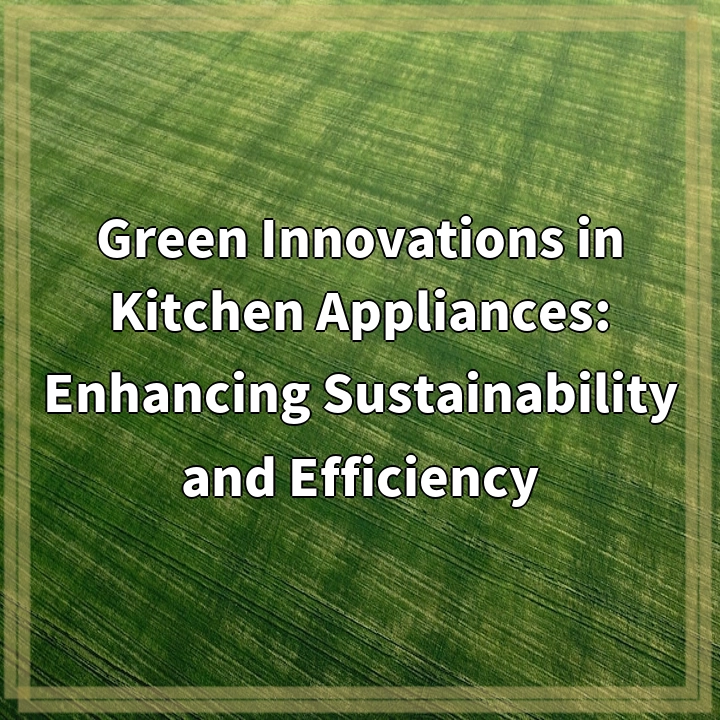
What it is:
Green Innovations in Kitchen Appliances refers to the development and implementation of eco-friendly and energy-efficient technologies in kitchen appliances. This involves the use of sustainable materials, improved energy efficiency, enhanced performance, and reduced environmental impact throughout the lifecycle of these appliances.
Real-world problems:
Despite the benefits offered by traditional kitchen appliances, they often contribute to significant environmental issues. Some of the main problems associated with conventional appliances include:
1. High energy consumption:
Traditional kitchen appliances consume substantial amounts of electricity, contributing to high energy bills and putting a strain on the electrical grid. This not only increases carbon emissions and environmental pollution but also adds to the overall energy demand.
2. Water wastage:
Many standard kitchen appliances, such as dishwashers and washing machines, use excessive amounts of water. This leads to water scarcity issues, particularly in areas prone to drought or limited water resources.
3. Use of harmful materials:
Some kitchen appliances contain hazardous materials, such as mercury, lead, and certain types of plastics, which can potentially leach into the environment. Improper disposal or lack of recycling options further exacerbate the problem by contributing to pollution and environmental contamination.
4. Limited durability:
Many traditional kitchen appliances have relatively short lifespans, often due to built-in obsolescence. This results in frequent replacements and disposal, adding to landfill waste and resource depletion.
5. Lack of efficiency:
Older kitchen appliances may lack energy-saving features or functionality, resulting in wasted energy and resources. Inefficient models often require higher energy inputs to achieve the desired results, leading to unnecessary energy consumption.

Solutions to Green Innovations in Kitchen Appliances:
1. Energy-efficient technologies:
One solution to the high energy consumption of kitchen appliances is the use of energy-efficient technologies. Energy Star rating systems and advanced features like automatic power-off and energy-saver modes help reduce electricity usage without compromising performance.
2. Water-saving features:
Incorporating water-saving features in appliances such as dishwashers and washing machines can help tackle water wastage. Innovative technologies like sensor-based controls, adjustable water settings, and optimized water usage enable efficient cleaning while minimizing water consumption.
3. Sustainable and non-toxic materials:
By utilizing sustainable and non-toxic materials, manufacturers can ensure that their kitchen appliances are environmentally friendly. Environmentally preferred materials and designs that prioritize recyclability and minimize the use of harmful substances contribute to reducing environmental impact.
4. Enhanced durability:
Designing kitchen appliances with enhanced durability is crucial to reducing waste and resource depletion. By using high-quality materials, efficient manufacturing processes, and considering repairability, appliances can have extended lifespans, reducing the need for frequent replacements.
5. Smart technologies and automation:
Incorporating smart technologies and automation features can greatly improve the efficiency of kitchen appliances. Smart sensors, connectivity, and scheduling capabilities allow appliances to optimize their performance, conserving energy and resources.















